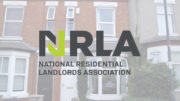Landlords have launched a blistering attack on the Welsh registration and licensing body Rent Smart Wales.
It has been a legal requirement since 2015 for private landlords to register with RSW. Those who manage their own tenancies and have not appointed a licensed agent, must also obtain a licence from the authority.
Registration costs between £45 and £84 – depending whether it is completed online or not – and last five years. Renewal costs between £36 and £67.20.
Licensing costs between £187 and £233 and also last 5 years. Renewal costs are between £168.30 and £200.70.
Landlord details are available in the public register maintained by RSW, which was set up under the Housing (Wales) Act 2014 to help landlords comply with their legal obligations under the act and to provide advice on renting out safe and healthy homes.
To date just under 107,000 landlords have registered with RSW and just under 49,000 have become licensed. Just over 5,000 letting agents have been licensed.
A first five year assessment by the National Landlord Knowledges Association, Rent Smart Wales: The Accountability Gap, claims it has failed to meet its objectives.
NRLA charges RSW with a lack of transparency in its working and providing poor value for money. There is an accountability deficit and landlords are paying in more than they get out of the service it said
Further, there is no regular evaluation of RSW. And ‘absence of a central, guiding strategy for the private rented sector from the Welsh Government has contributed to RSW’s shortcomings’.
RSW has not engaged well enough with landlords, tenants, or local authorities and ‘in meeting its objectives, RSW’s record has been far from stellar’.
The body was introduced as Wales’ single licensing authority, but councils retained the ability to introduce local discretionary landlord licensing schemes with more fees and paperwork. Additional licensing of Houses in Multiple Occupation is in place in half of Wales’ 22 councils.
NRLA’s report calls a public annual report into RSW’s performance and direct scrutiny by the Senedd every year. ‘The unanticipated surplus, numbering in the millions, generated by RSW through law abiding landlords should be used to provide discounts or free training for landlords or more effectively deployed into improving enforcement activities and tackling criminal landlords’, it said.
NRLA Wales’ policy and public affairs officer Calum Davies, said the NRLA believes there has been insufficient scrutiny of RSW – an incredibly powerful body considering how much regulatory and prosecutorial power it wields.
What is clear from NRLA’s own assessment is ‘a lack of transparency as to how decision-making within the organisation is conducted and who is politically accountable for decisions that affect over hundreds of thousands across Wales. It is obviously a positive thing that RSW and the Welsh Government share the NRLA’s ambition to improve the private rented sector.
‘We hope our research and its findings will advance the debate about improving standards and encourage actions to be taken that will result in a fairer sector for all’.







